Cuban migrants furious, disconcerted by end of US welcome policy Juan José Rodriguez in Panama City with Leila Macor in Miami AFPJanuary 13, 2017 – VIA YAHOO.COM View photos A top Panamanian official said Cuban migrants, pictured, must leave Panama now following US President Barack Obama announcement of a decade-old US policy change on
Cuban migrants furious, disconcerted by end of US welcome policy

Panama City (AFP) – For Cubans trekking through Latin America to the United States, the sudden decision by President Barack Obama to end a longstanding policy giving them automatic entry has come as a cold, hard punch to the gut.
“Obama has screwed all Cubans,” Yadiel Cruz, a 33-year-old Cuban man in a Panama shelter, told AFP bitterly.
The long route from South America, through Central America and into Mexico to the US border is a migration pipeline that can take years for Cubans to complete, with pit stops to earn money along the way.
“We feel sadness because we are all coming with a dream that comes from pain, hunger and a lot of work to get this far,” Lorena Pena, a woman four months pregnant who left Cuba with her husband and four-year-old daughter, said in the same shelter.
Obama, she said, “screwed up, because what he’s done is hurt us — so he really isn’t as good as everyone says.”
The president’s move to scrap the 1995 policy known as “wet foot, dry foot” means that Cubans without visas arriving in the United States by land or sea now risk being turned away, unless they claim asylum or humanitarian imperatives.
This was already the case with those intercepted at sea.
The decision is part of Obama’s normalization of ties with Cuba launched in 2015. Havana and Central American capitals had long criticized “wet foot, dry foot” for acting as a magnet for Cubans.
– ‘In limbo’ –
“It’s like someone has knocked the air out of you,” said Ivan Diaz, a Cuban health worker in a shelter in Tapachula, in southern Mexico on the Guatemalan border.
The 28 Cubans in the shelter were despondent. They were among a much bigger group of Cubans dispersed among government and charity shelters awaiting Mexican transit permits to go to the US border.
Luis Rey Villagran, an activist, said around 680 Cubans already registered with Mexican migration officials would likely get the permit. But many more “are in limbo.”
Some Cubans along the route said they would wait and see what Obama’s successor, Donald Trump, would do when he becomes America’s president in a week.
But their hopes could be misplaced, judging from Trump’s strong anti-immigration stance and criticism of the normalization deal.
Whatever Trump decides to do in terms of Cuba will weigh on its citizens, many of whom are praying for the thaw with the United States to result in easier living conditions.
– Cuban-American approval –
Nearly two million Cubans live in the United States, both native-born and migrants. They or their parents moved there over the past half-century, often to Florida, which is the closest state geographically to Cuba. Many used “wet foot, dry foot” to enter the country.
The universal disappointment felt by Cubans currently fleeing the island nation is not necessarily shared by their Cuban-American counterparts.
Many older Cubans in the United States, for instance, feel that newcomers are more of economic migrants than political refugees.
And some feel that the 1995 rule had unnecessarily imperiled lives as Cubans did all they could to reach shore when intercepted.
Obama “is looking out for people’s lives, because people were throwing themselves into the sea,” said a Cuban beverage worker in one Miami cafe who gave her first name only, Idania.
Ramon Saul Sanchez, head of a Miami association defending Cubans’ rights, said: “There were many cases of, for example, political dissidents picked up at sea who were returned to Cuba.”
But there was some sympathy, too, for compatriots who were in the migration pipeline coming up from Latin America.
“What disgusts me the most is what will happen with all those who started their trip one or two months ago and who haven’t got here yet,” said Ernesto Rodriguez, who entered the United States seven years ago under the extinguished policy.
– ‘Not going back to Cuba’ –
Most, inside and outside America, agreed however that the change in policy would do little to deter the wave of Cubans determined to start new lives in America.
Tougher restrictions since last year on Cubans passing through Central American countries has only driven them underground, into the hands of “coyotes,” or people-smugglers.
In the Panama shelter, Ulises Ferrer, a carpenter from Havana, was one of several who said he wouldn’t turn back.
“We don’t know what we’re going to do now. But what we’re certain of is that we’re not going back to Cuba unless we’re dead,” he said.
For Yanisel Wilson, a 20-year-old, US laws were a far less intimidating deterrent than the other troubles Cuban immigrants face.
“We are thousands of Cubans who have crossed through the middle of the jungle, rivers and dangers,” he said.

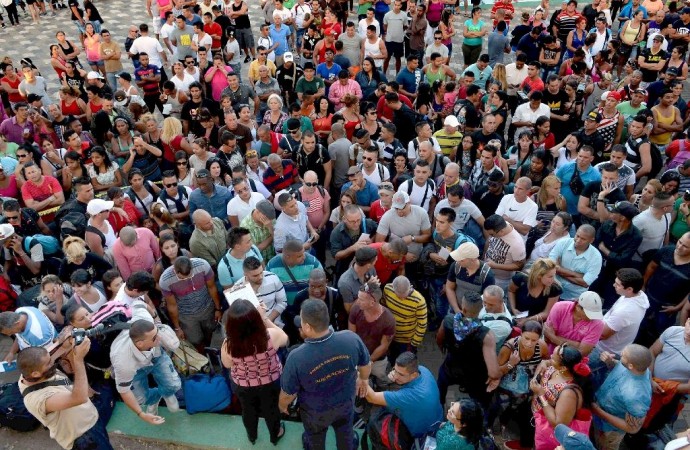

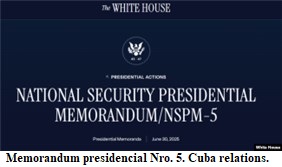
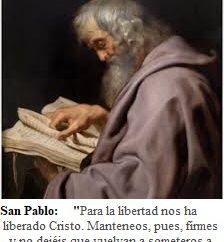

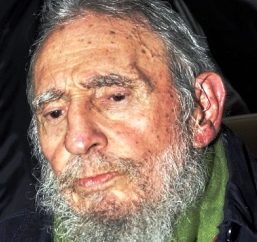
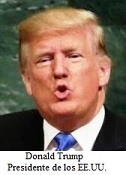

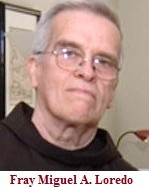
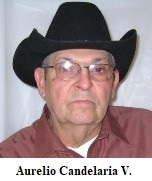
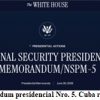


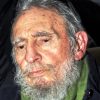
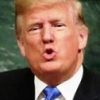
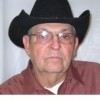
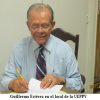

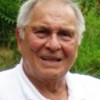
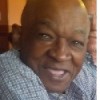
Leave a Comment
Your email address will not be published. Required fields are marked with *